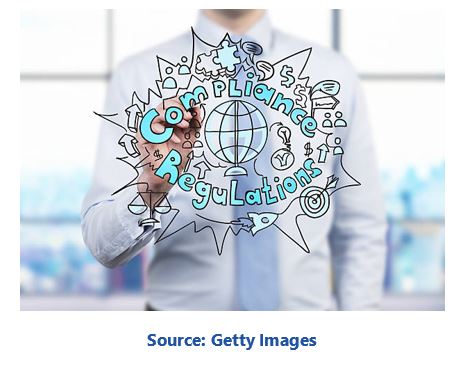

Global Trade Compliance (GTC) is of vital importance in the pandemic-born new normal. Today’s business landscape is complex and capricious; global trade laws are changing on a continuous basis and companies have to swiftly comply to these new regulations. The wider the geographic footprint, the greater the compliance expectations. Every country has different regulations and policies for safety and quality control that companies must adhere to. Non-compliance can lead to unforeseen shipment delays, financial losses, and disrepute. This calls for integrated and effective trade compliance strategies and solutions to create flexible and resilient supply chains.
GTC solutions automate the discovery, creation, retention, analysis, and communication of information about international supply chains that are of importance to customs and other government authorities responsible for regulation and taxation of cross-border trade. These solutions mitigate risk and enable optimal decision-making with respect to the impact of customs and compliance on business operations. In order to avoid fines and prevent negative publicity, GTC solutions allow trade goods to be correctly classified, the right duties/tariffs to be paid, and create uniform auditable processes that protect brand equity. A few other important benefits:

Governments mandate compliance with laws that prohibit businesses from dealing with parties – either individuals or organizations – which are on a sanctions list. For example, in the US, the Office of Foreign Assets Control (OFAC) publishes lists of individuals and companies, and the addresses of those entities, owned or controlled by targeted countries. It also lists individuals, groups, and entities, such as terrorists and narcotics traffickers, which are not country specific. Trading with a company on the sanctions list can attract large fines to the tune of several million dollars or even imprisonment.
All transactions, even those within the borders of a nation, are part of the compliance regime. As companies and individuals are added to these lists, the GTC solution must be updated. Every country has a different list of parties that they prohibit a company from doing business with. Across the world, there are more than 650 such restricted party lists.
For large shippers, classifying goods for tariffs is a complex and daunting exercise. There is a yawning gap between how products are described commercially by trade and how they are expressed in the customs tariff schedules. According to trade compliance jargon, “baby food” would be described as “homogenized composite food preparation.” To determine the tariff associated with rayon, you must know whether it is an “artificial” or a “synthetic” fiber. In the global tariff tables, a car alarm is not listed in the automotive section; it is an “electronic signaling device.” To understand these complexities and improve trade classifications, companies are now partnering with vendors to apply artificial intelligence and machine learning to these processes.
ARC Advisory Group clients can view the complete report at ARC Client Portal
If you would like to buy this report or obtain information about how to become a client, please Contact Us
Keywords: Global Trade Compliance (GTC), GTC Solutions, Supply Chain, Pandemic, ARC Advisory Group.

